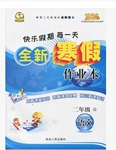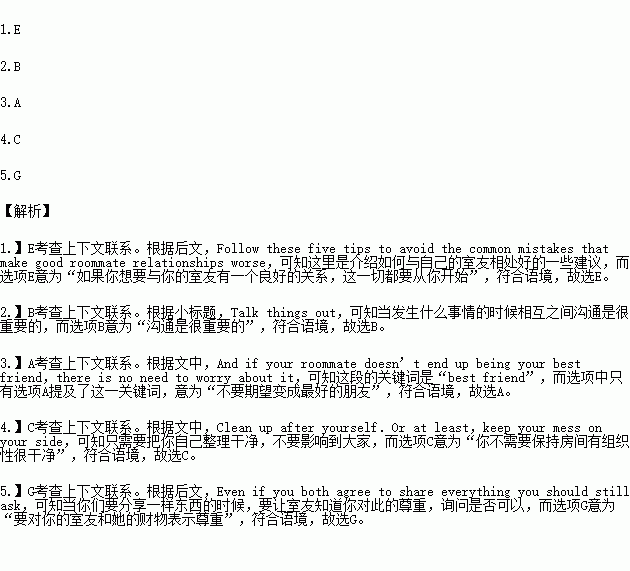题目内容
根据短文内容,从短文后的选项中选出能填入空白处的最佳选项,选项中有两项为多余选项。
Many students have to live with roommates while going to school or university.Having a roommate can be one of the best experiences,or easily one of the worst1..
Follow these five tips to avoid the common mistakes that make good roommate relationships worse.
Talk things out.2.. If something happens,sit down with your roommates and have a face-to-face conversation.Complaining about your roommates behind their backs creates nothing but awkward situations and general unhappiness.
3.. Some roommates become the best of friends,and some don’t.Don’t put pressure on yourself or your roommate to r each this level,especially when you first meet.Remember, you are trying to make a new friend,not scare your roommate away.And if your roommate doesn’t end up being your best friend,there is no need to worry about it.
each this level,especially when you first meet.Remember, you are trying to make a new friend,not scare your roommate away.And if your roommate doesn’t end up being your best friend,there is no need to worry about it.
Clean up after yourself.Or at least,keep your mess on your side.4.. But being considerate with where you put your own stuff will help you avoid the arguments.
Ask before you take.This applies to food,clothes,supplies and anything else that you don’t own.5.. Even if you both agree to share everything you should still ask.
A. Don’t expect to be best friends.
B. Communication is of vital importance.
C. You don’t need to keep the room clean and organized all the time.
D. Rooms can be really easy for a mess to pile up.
E. If you want to have a good relationship with your roommate,it all starts with you.
F. Not all roommates can become your best friends.
G. Show your roommate that you have respect for his or her belongings.
 桃李文化快乐暑假武汉出版社系列答案
桃李文化快乐暑假武汉出版社系列答案 优秀生快乐假期每一天全新寒假作业本系列答案
优秀生快乐假期每一天全新寒假作业本系列答案
